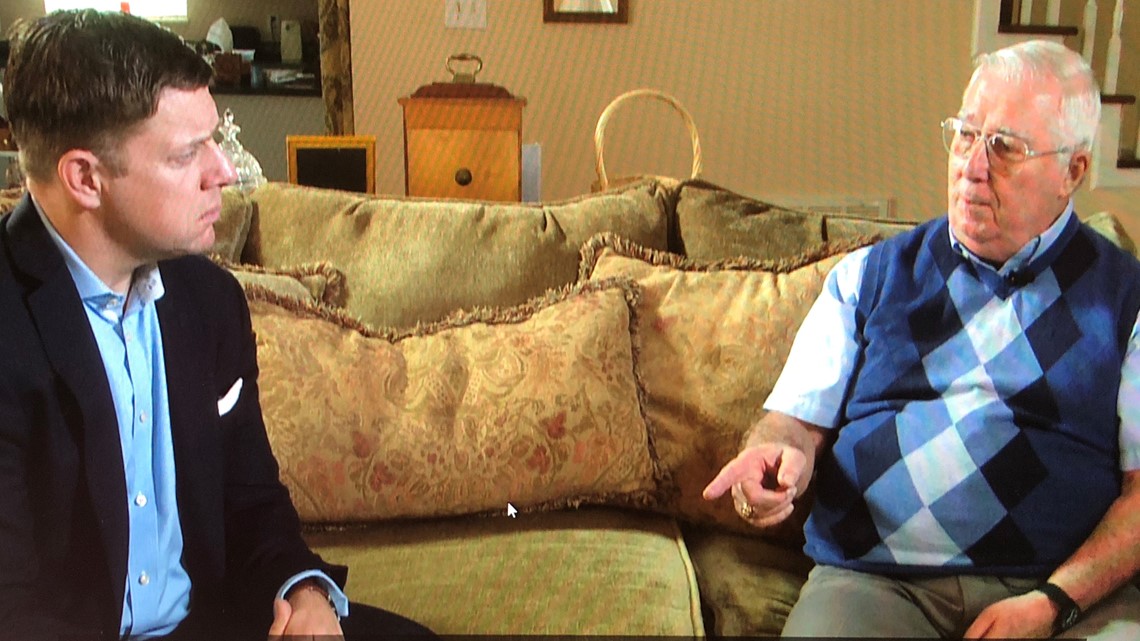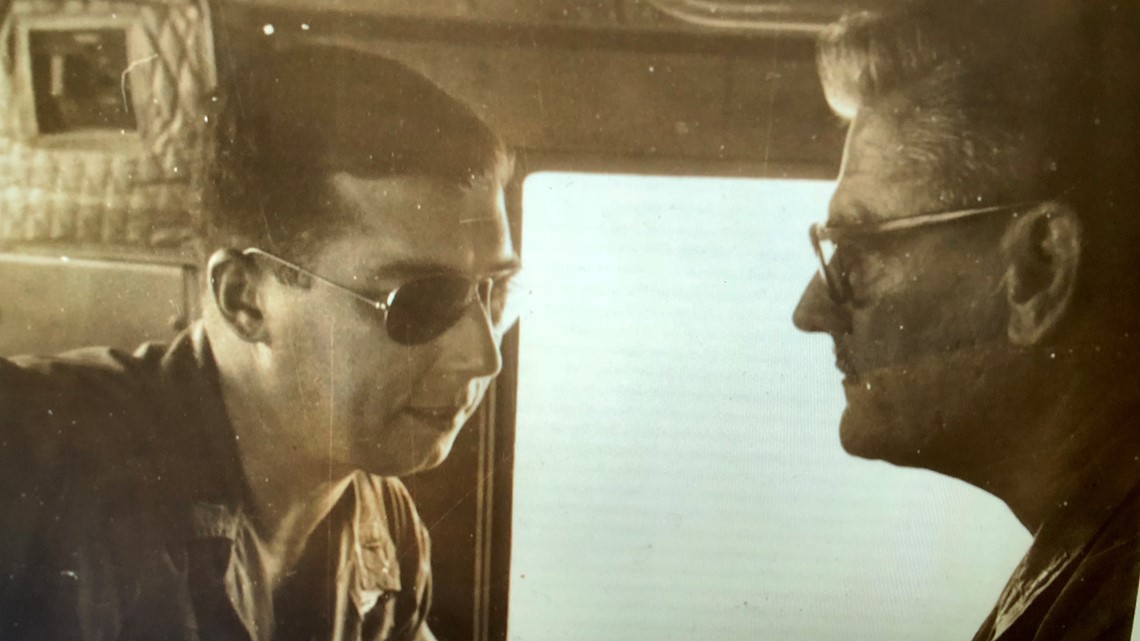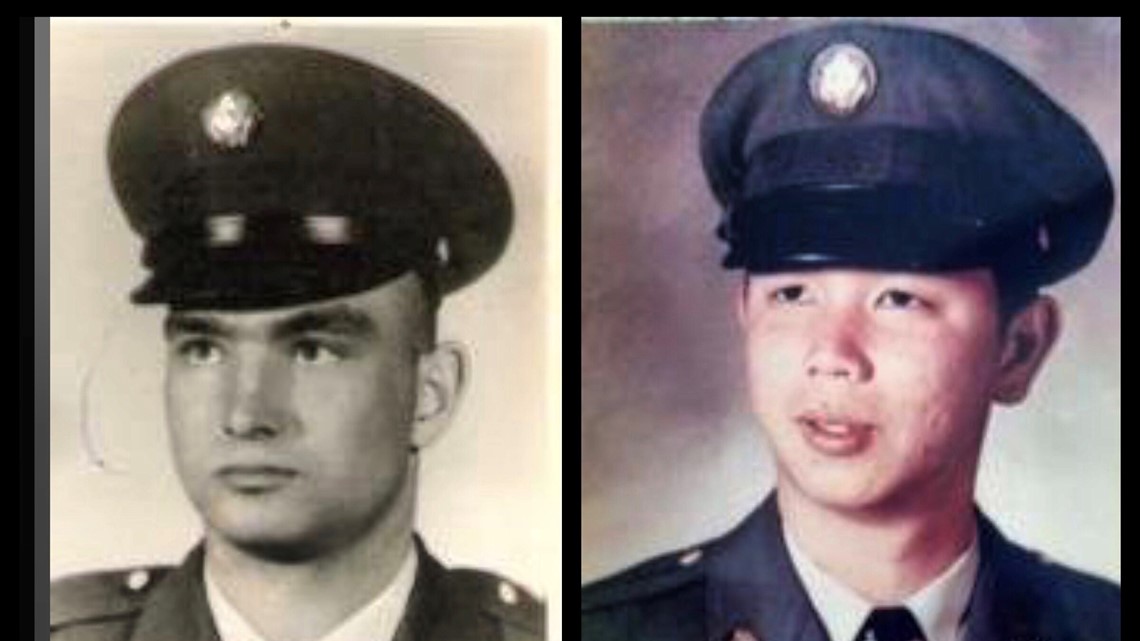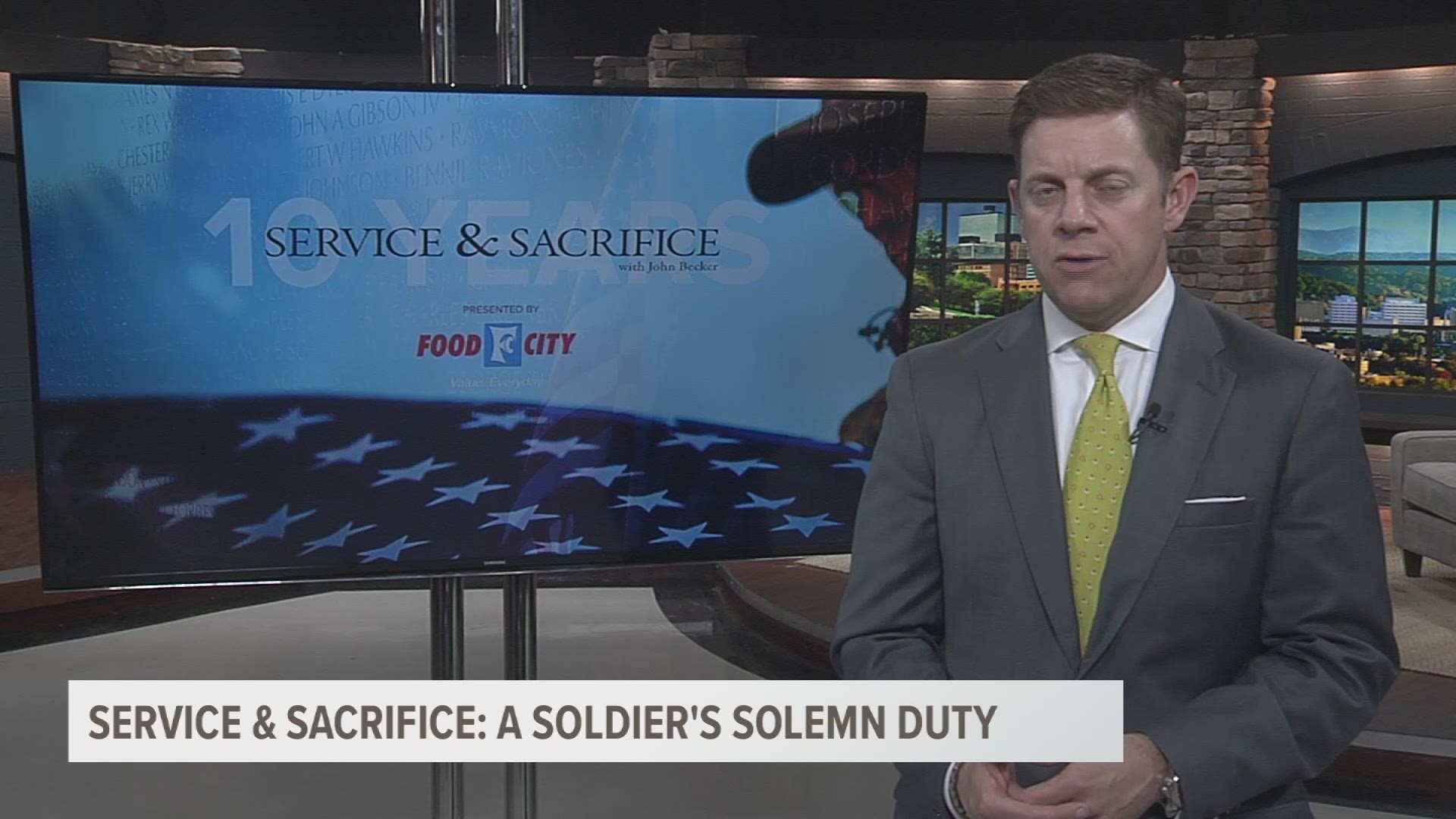In his more than three decades of distinguished military service, Major General (Retired) Jack D’Araujo Jr. says perhaps his toughest assignment came as a young soldier just before joining the frontline fight in Vietnam.
“It was a defining event,” said the now 75-year-old combat veteran reflecting on his duty 50 years ago as a Casualty Assistance Officer. The Army called on him in the three months before his tour of duty to find and tell the families of fellow soldiers that their sons had been killed in combat.
“You’re dealing with an innocence there that is not connected directly to the war,” said D’Araujo, who remembers breaking that solemn news to at least five families.


“We forget that behind all those names are absolutely hundreds of thousands of names that are absolutely shattered and broken by the fact that these people were lost,” D’Araujo said, referring to the 58,000 names listed on the Vietnam Veterans Memorial in Washington D.C.
In addition to our on camera interview, Mr. D’Araujo took time to answer the following 10 questions about the influence his 35 years of military service has had on his life.
1. What one person influenced you most in life?
"I had many who influenced my life. I must say that my father was the most significant influence. I watched him from a very young age in his military duties, and he was a superb role model for me later in my own. I had the honor of serving with him for a part of his career including both of our tours in Viet Nam."


2. Do you feel honored and respected for serving your country?
"I do now. However, after returning home from Viet Nam I have to say that I (and many of my contemporaries) were either ignored at best or reviled at worst. Except for our own families and fellow soldiers, of course. That changed dramatically after Desert Storm and more so after 9-11. It took a long time but I am grateful that many are openly respectful of our military service. It is still heart-warming when someone says, 'Thank you for your service' or something similar."
3. How can people thank you for your service?
"By continuing to support those who serve in our military forces. By respecting those who have sacrificed for the values and principles we treasure in this country; freedom and the rights we treasure as Americans."
4. How do you honor your fellow service men and women?
"By staying engaged with what they are doing in serving in our military. Volunteering to communicate and inform the public, employers and civic organizations why their service is so critical to the security of this nation. I try to participate in local events honoring our veterans whenever I can. I take every opportunity to personally thank the service members and their families whom I encounter for what they are doing to keep us all safe."


5. How do you think this generation of military men and women is different or similar to yours?
"My personal view is that there are many more similarities than there are differences. Soldiers have been and always will be soldiers. By that I mean that they both understand that selfless service is a hallmark of being committed to the service of our country. We have the finest military we have ever had. They are all volunteers. They are better trained and better equipped than those of my generation. However, I will hasten to add that I served in combat with soldiers who were draftees. Many (if not most) did not want to be there but they did their duty and many gave their lives in the service to their country. They were no less soldiers than the volunteers of today."
6. What influence did your military service have on the rest of your life?
"My military service (35 years) influenced my life in many ways. My tour in Viet Nam was the most defining event in my entire life. I came to appreciate that we should never commit our soldiers to war except only as a last resort and only when demanded by our national interest. I was able to know some of the finest, most dedicated and honorable people one can imagine. I learned first hand the value of freedom and that there is a price to be paid to maintain and treasure that freedom of a type that only Americans can enjoy. I learned that being a senior leader in the U.S. military means that a higher standard is demanded of you and that it is the way it must and should be. I learned to love soldiers and I always will until my last breath."
7. Does your family have a history of military service?
"Yes, as I mentioned my father was a soldier. He was a veteran of WWII, Korea and Viet Nam. We served together in VN. I had several uncles in the Army who served in WWII and Korea. I lost a cousin in Korea."
8. Would you encourage younger generations in your family to join the service?
"Absolutely. I encourage all of my family members with whom I have contact to serve in our military. I encouraged a nephew to join. He joined the US Navy and served aboard the USS Nimitz Super Carrier. I told him that if he made it I would be there the day he graduated from Boot Camp. I drove to Great Lakes Illinois and presided over his class graduation at Boot Camp. (Surprising for an Army guy)."
9. How has your opinion of war changed?
"As I mentioned, my tour in Viet Nam was the most defining event in my entire life in a number of ways. I learned It is a most costly endeavor in terms of human life and resources. There is little that is glamorous, and in many respects, far from the Hollywood image that many Americans seem to have. None of us came out of that experience the same person as the one who went into it. Many of us will carry the scars (emotional and/or physical) for the rest of our lives. I believe in the axiom posited by Von Clausewitz that war is, in fact, the continuation of politics by other means. He also talked about the unexpected consequences that develop under 'the fog of war.' I learned to appreciate the accuracy of those aphorisms based on my personal experiences in the military. Those experiences included not only Viet Nam, but Grenada, Haiti and Desert Storm as well, not to mention the Cold War. My view is that we should engage in armed conflict only as a last resort but when we do make that commitment that we have a full commitment from the American people and that we never place our military into a 'fair fight.' A fair fight is great for a boxing match but when it comes to armed conflict where we place Americans in harms’ way, we need to do so with no half measures and we need to be clear about our objectives and what the end state should look like before we become engaged in war. We should only be 'in it to win it.'
I also developed a clear view that there are things worth fighting for."
10. How did your military experience shape your faith?
"I believe it was in WWII in Bataan that someone said that 'There are no atheists in foxholes.' I believe that my faith was strengthened by serving in the Army. It was the one reliable constant in my life no matter where I went, what assignment I had and what situation I encountered."

